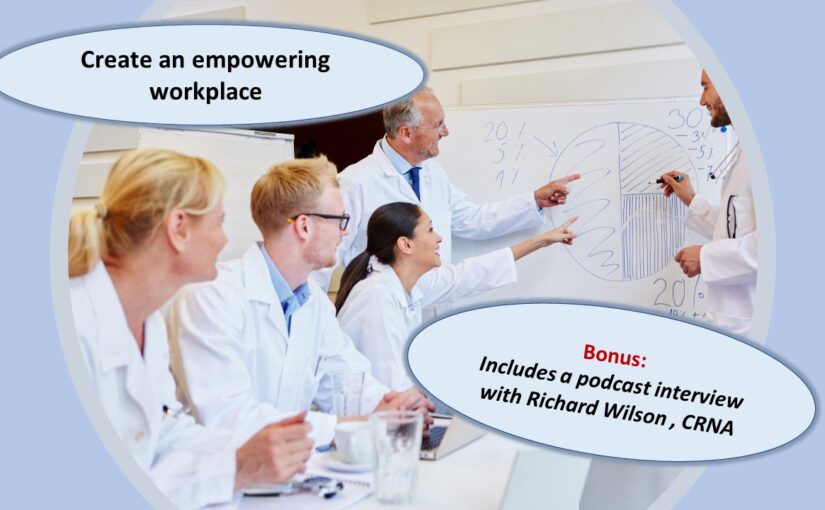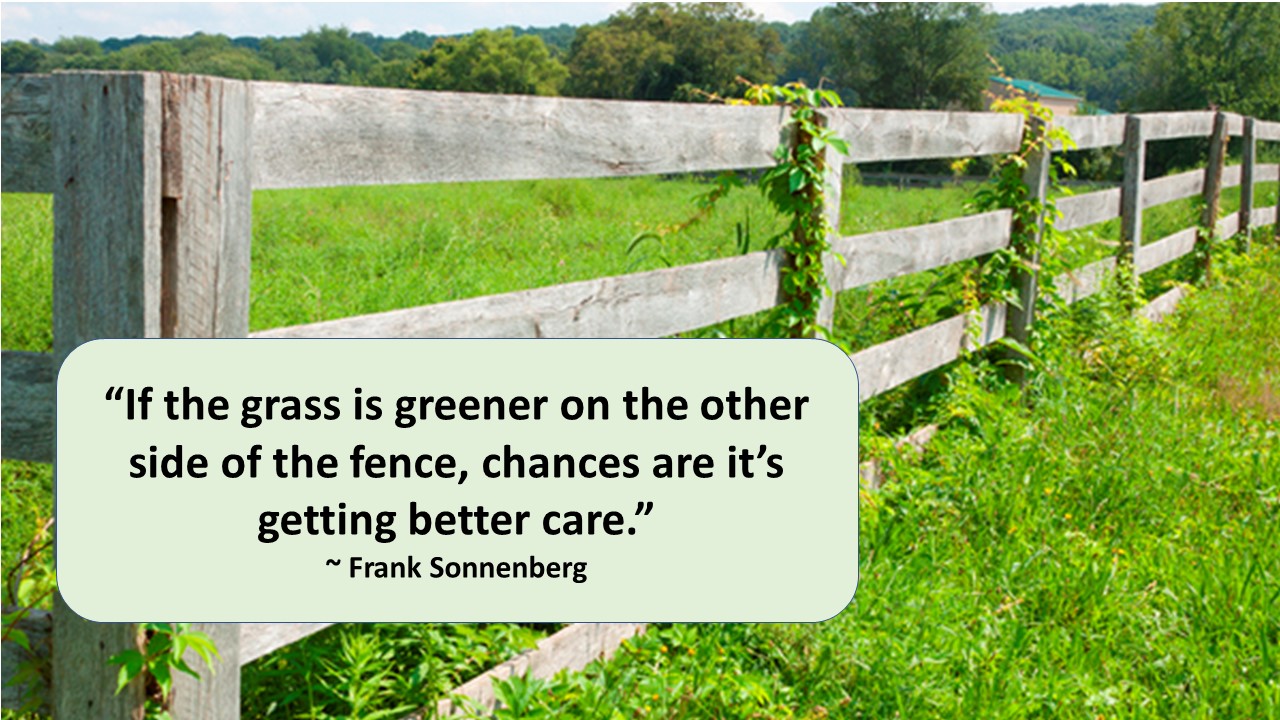By Thomas Davis, DNAP, MAE, CRNA
The times they are a changing. Not long ago, applicants who lined up to compete for healthcare jobs hoped to be the lucky winner of the coveted position. Now, due to many factors including COVID burnout, healthcare organizations are competing to attract candidates to fill the void created by open positions. More than ever, employers are seeking ways to retain current workers while creating a positive reputation that will attract additional qualified people. In short, organizations have a new focus on implementing employee friendly activities and have discovered that professional development is a core element of a preferred workplace. Investing in all aspects of worker growth improves morale, engagement, productivity and retention.
Writing for Insperity, author Celenia Estime identifies the following as characteristics of a great workplace:
- A sense of belonging
- A sense of purpose
- Allowing employees to have fun
- Provide an opportunity for development and advancement
Clearly, Celenia is in alignment with other writers who tout professional development as an essential component of a highly desirable workplace.
The Gallup organization has been collecting information related to staff engagement for several decades and have refined their engagement assessment tool to 12 basic questions referred to as the Gallup Q12. Savvy employers note that many of the twelve questions are designed to generate positive responses from workers when the organization has an ongoing commitment to the professional development. These questions from the Gallup Q12 that support the importance of a robust professional development program.
- In the last seven days I have received recognition or praise for doing good work
- My supervisor or someone at work seems to care about me as a person
- There is someone at work who encourages my development
- At work, my opinions seem to count
- The mission or purpose of my company make me feel as if my job is important
- In the last six months, someone at work has talked to me about my progress
- In the last year I have opportunities to learn and grow.
The Gallup team know that affirmative responses to these questions indicates that the team is highly engaged in their work and are likely to be both productive and loyal to the employer.
At this point, you may be all in for professional development but unsure about where to start. If your workplace does not have an ongoing staff development program, step up and look for opportunities to learn new skills and to share your knowledge with your teammates. An active combination of teaching, coaching, and mentoring will provide opportunities for personal growth for you and your colleagues as you learn and grow together.
“You will get all you want in life if you help enough otherpeople get what they want.”
~Zig Ziglar
In a podcast interview with Richard Wilson, CRNA, the importance of teaching, coaching, and mentoring are discussed. Although there is overlap between the three approaches, Richard discusses the subtle differences and offers insight into how to effectively apply each approach to introduce professional development to your workplace. Click on the podcast at the end of this article.
Teaching is designed to impart academic information and instruction to a group of learners. In most cases, the material is presented in a pre-determined manner and is designed to fulfill a specific need. Teaching is often confined to working with neophytes in the classroom however when best practice guidelines are updated, opportunities for teaching arise for experienced workers.
Coaching occurs in the actual work environment and is often an extension of the classroom. Typically, the coach builds on classroom knowledge by using his/her experience to teach hands on skills to less experienced people on the team. As Richard points out in the podcast, coaching moves the learner from understanding concepts to acquiring the skills necessary for completion of a task. When a leader arranges for an experienced person to coach a new member of the team, both the coach and the new hire have opportunities for professional growth.
Mentoring is a special relationship between two people in which the senior, more experienced person helps the underling define a vision, develop a plan, and achieve a goal. Mentoring goes beyond teaching and coaching by introducing elements of professionalism and networking to the process. The mentoring relationship is built upon trust and often develops into a lifetime friendship between the two individuals.
“Never doubt that a small group of thoughtful, committed people can change the world. Indeed. It is the only thing that ever has.”
– Margaret Mead, American cultural anthropologist
Professional development is the ultimate win/win for the organization, frontline leaders, and individual workers. By actively engaging workers to participate in professional development, an important step is taken toward creating a preferred workplace that will attract and retain the best employees. Author Trevor Antley notes the following as positive outcomes related to professional development:
- Professional development expands your knowledge base.
- Professional development boosts confidence and credibility
- Professional development increases earning potential and hireability
- Professional development can provide networking opportunities
- Professional development keeps professionals current on industry trends
- Professional development can open the door to future career changes
Congratulations if your workplace encourages and supports professional development because you landed a great job. However, when the boss does not provide avenues for personal growth it is time to step up and be a leader regardless of your seniority or position in the workgroup. Stay current with professional literature and freely share your ideas with your colleagues. Establish both formal and informal times to share what you have learned by teaching and coaching. Volunteer to be a coach for new hires and seek coaches for yourself when you want to learn a new skill. Seek out a mentor who will help you move into a leadership role initially in your workgroup and later in the organization. Look outside your organization and consider completing an advanced degree or gaining certification in a related area such as ultrasound nerve blocks or pain management. Finally, listen to the advice provided by Richard Wilson in the podcast.
Click here to listen to the Podcast
Tom is an experienced leader, educator, author, and requested speaker. Click here for a video introduction to Tom’s talk topics.


